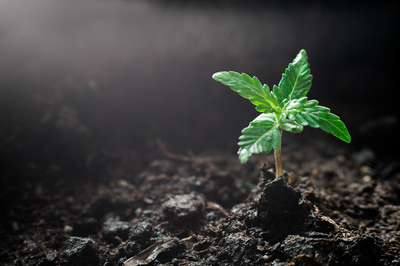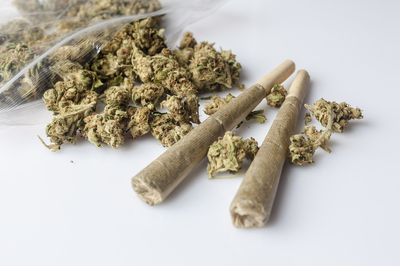
While marijuana comes from the ground, synthetic cannabinoids are man-made — with unknown and potentially deadly ingredients.
Last month the Centers for Disease Control and Prevention (CDC) sent out an emergency health alert about the dangers of a particular strain of synthetic cannabinoids which has been linked to deadly bleeding disorders. This is just one of many reasons why synthetic cannabinoid products are a threat to public health. Here’s a closer look at the dangers of synthetic cannabinoids, along with one substance abuse treatment program offering the hope of recovery to addicts.
What are Synthetic Cannabinoids?
While synthetic cannabinoids, AKA “K2,” “Spice,” “Black Mamba,” and “Kronic,” are sometimes referred to as “synthetic marijuana” and “fake weed,” they aren’t actually marijuana. Rather, they’re engineered with chemicals similar to those found in marijuana. Unlike marijuana, however, synthetic cannabinoids are anything but “natural.” So while they do contain shredded, dried plant material, they also contain unpredictable man-made chemicals which can be life-threatening to people who use them.
The biggest issue with synthetic cannabinoids? Because of the man-made element, there’s no way to know what you’re getting when using them. Instead, the amount and type of chemicals vary from batch to batch. In fact, more than 175 different synthetic cannabinoids were reported in a single year alone. As Sarah Wakeman, MD, medical director for substance use disorders at the Massachusetts Center for Community Health, told SELF, “K2 is unpredictable because we often don’t know what the compound is. It’s just a bunch of chemicals that are sprayed on some random dried plant leaf.”
Furthermore, manufacturers are constantly coming up with new formulations to avoid legal issues. In the case of the most recent CDC warning, the Illinois Department of Public Health received reports of cases of unexplained bleeding out of the eyes, ears, and mouths of people using these drugs. Subsequent testing revealed the presence of brodifacoum, a toxic component used in rodent killers. Multiple people died and many more became ill from this rat poison-laced drug.
The Effects of Synthetic Cannabinoids
All of this begs the question, just how dangerous are synthetic cannabinoids? Very. The drug has the ability to impact a variety of brain receptors — including those acted upon by tetrahydrocannabinol (THC), the main active ingredient in marijuana — which can lead to everything from nausea and vomiting to rapid heart rate. Synthetic cannabinoids can also cause violent behavior, paranoia, hallucinations, and even suicidal thoughts, not to mention the fact that as new synthetic cannabinoids emerge, so do new potential health risks.

It looks like marijuana, but it’s been called “the world’s worst synthetic drug.”
Unfortunately, more and more people are falling victim to synthetic cannabinoids. According to the most recent statistics from the National Institute on Drug Abuse, poison control call centers received 2,695 calls pertaining to exposure to these drugs over the course of a year. Meanwhile, ER visits linked to synthetic cannabinoids totaled 28,531. Adolescents and young people are the most vulnerable to synthetic cannabinoid products. A staggering 78 percent of ER visits pertaining to these drugs were associated with the age 12-29 demographic. Men are also more likely to use synthetic cannabinoids than women, accounting for 70 percent of all ER visits.
Legal But Far from Safe
Perhaps the worst thing about synthetic cannabinoids is that they’re legal. So in addition to being available for purchase through the usual illicit channels, they can also be bought everywhere from convenience stores to herbal shops. Synthetic cannabinoid products are also inexpensive — making them even more accessible to people who may not understand that the product they’re buying is far from the natural product they think it is.
The Cleveland Clinic’s Jason M. Jerry, MD, recently told SELF, “There are things that pop up with K2 that you wouldn’t expect to see with marijuana intoxication…No one really knows what they’re actually getting when they pick up a package. You really are playing Russian roulette when you use this stuff.”
The takeaway? If you or someone you love is addicted to synthetic cannabinoids, understanding the dangers is critical. So is seeking help. To learn more about how leading St Louis drug rehab establishment Harris House has been helping people overcome addiction and embrace recovery, contact us today.







